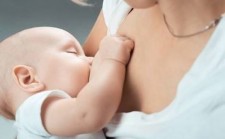There have been no documented cases to-date of an infant contracting COVID-19 as a result of consuming infected breast milk but without studies it was hard to be sure, to this is good news for families with new babies.
Because younger people are far less affected, there are not a lot of samples. This analysis was 64 samples from 18 women but it affirms again that detection of viral RNA does not equate to infection. It has to grow and multiply in order to be infectious.

The current recommendations to prevent transmission while breastfeeding are a lot like they would be if you don't want hepatitis A; hand hygiene and sterilizing pumping equipment after each use. Those make good sense even when there is no pandemic.
The researchers also mimicked conditions of the Holder pasteurization process commonly used in human donor milk banks by adding SARS-CoV-2 to breast milk samples from two different donors who were not infected. The samples were heated to 62.5°C for 30 minutes and then cooled to 4°C. Following pasteurization, infectious virus was not detected in either sample.
"In the absence of data, some women infected with SARS-CoV-2 have chosen to just not breastfeed at all," said Grace Aldrovandi, MD, co-principal investigator of the study, chief of the Division of Infectious Diseases at UCLA Mattel Children's Hospital and a professor of pediatrics in the David Geffen School of Medicine at UC Los Angeles. "We hope our results and future studies will give women the reassurance needed for them to breastfeed. Human milk provides invaluable benefits to mom and baby."






Comments